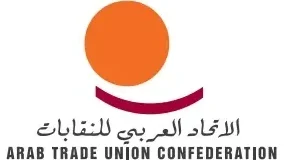الحوار الاجتماعي والمفاوضات الجماعية
(المنصة التعليمية للاتحاد العربي للنقابات)
الزميلات والزملاء الأعزاء،
يسرّنا أن نقدّم لكم هذا الدرس ضمن المنصة التعليمية للاتحاد العربي للنقابات، والذي يتناول موضوعًا محوريًا في الحياة النقابية وفي بناء علاقات مهنية عادلة ومستقرة، وهو: الحوار الاجتماعي والمفاوضات الجماعية.
يشكل الحوار الاجتماعي إحدى الركائز الأساسية للعمل اللائق، وهو الأداة الأنجع لحل النزاعات، وبناء التوافقات، وضمان مشاركة حقيقية للعمال في صنع القرارات الاقتصادية والاجتماعية. أما المفاوضات الجماعية، فهي الآلية العملية التي تمكّن النقابات من الدفاع عن حقوق العمال وتحسين شروط العمل عبر اتفاقيات جماعية مكتوبة وملزمة.
من خلال هذا الدرس، سنسعى إلى:
• التعرف على مفهوم الحوار الاجتماعي وأشكاله (ثنائي، ثلاثي)، ومجالاته، وأهميته في ترسيخ السلم الاجتماعي.
• فهم أدوار الأطراف الثلاثة: النقابات، أصحاب العمل، والحكومات، في إدارة الحوار والتشاور الاجتماعي.
• التعرف على مبادئ المفاوضة الجماعية، ومراحلها الأساسية: التحضير، بناء الملف المطلبي، التفاوض، وتوقيع الاتفاق.
• اكتساب مهارات وتقنيات التفاوض الفعال، وتفادي الفشل أو التصلّب في المواقف.
• استعراض تجارب ناجحة من العالم العربي في الحوار الاجتماعي وتحقيق مكاسب من خلال التفاوض الجماعي.
يتضمن الدرس محتوى تفاعليًا يشمل أدوات عملية مثل نماذج خطط التفاوض، جداول التحضير، محاكاة لجلسات حوار، ودراسات حالة واقعية من مؤسسات وقطاعات مختلفة.
إن تعزيز الحوار الاجتماعي والمفاوضة الجماعية لا يُعد فقط مطلبًا نقابيًا، بل هو أيضًا مسار لبناء الثقة والاستقرار وتحقيق العدالة داخل عالم العمل.
فلنخض هذا الدرس بإرادة جماعية، لبناء ثقافة تفاوض قائمة على التوازن والكرامة والتأثير
